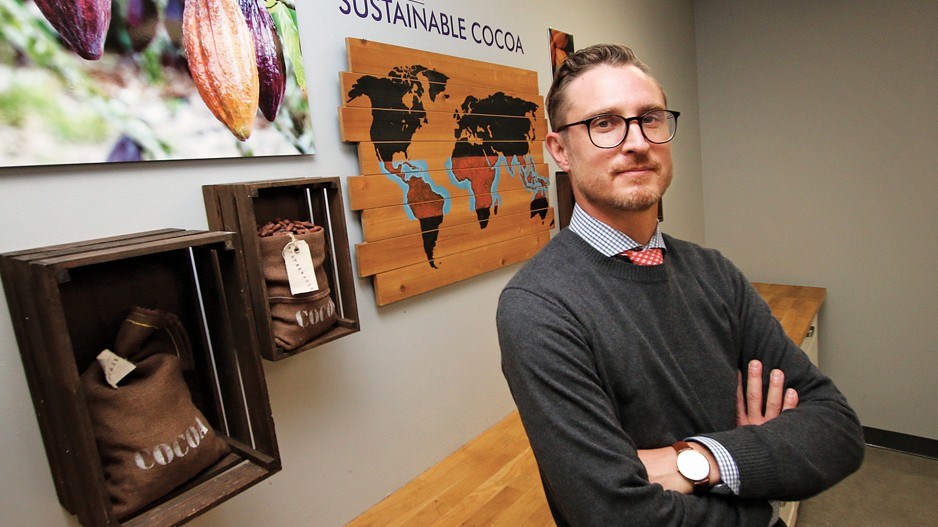With price hikes for raw materials, labour and shipping racing ahead of what manufacturers are able to charge consumers, profit margins are shrinking faster than they have in years.
Economists suggest the root of this phenomenon is that demand for goods is soaring much faster than supply.
Excess capital in consumers’ pockets is fuelling the demand. Workers have been able to save more during the pandemic, when many social activities and travel were curtailed. Spending shifted away from experiences and toward manufactured goods.
Supply constraints have also resulted from COVID-19 restrictions that bog down workflow, port closures when workers have been infected with COVID-19, electricity rationing in China and natural disasters, such as summer flooding in China’s Henen province.
“This is really a mismatch between demand and supply, and we need those supply blockages to alleviate, to abate, before inflation can come down,” Jerome Powell, chair of the U.S. Federal Reserve said September 28.
Statistics Canada released data September 29 that showed its Industrial Product Price Index in August was up 14.3% compared with August 2020. The index measures prices for products manufactured in Canada.
In contrast, Canada’s Consumer Price Index, which measures the prices that consumers pay, rose much less – 4.1% year-over-year in August.
Food and beverage manufacturers that buy raw materials and packaging, add value, and then sell to B.C. consumers have therefore been left scrambling.
Vancouver-based Purdys Chocolatier, for example, generates almost half of its revenue each November and December, company president Lawrence Eade told BIV.
“We’ve been priced ready to go for this holiday season, so we couldn’t really pass on price increases right now.”
Eade added that Purdys loaded up on cocoa and chocolate earlier this year, when their prices had declined.
“Shipping costs are probably our biggest input cost increase right now. We’re paying upwards of $20,000 per container, when we would have been paying $2,000 a year ago or 18 months ago.”
Those containers deliver raw materials and packaging.
About one-third of Purdys’ expenses are raw materials, one-third is packaging and one-third is labour, Eade estimated. The result, he said, is a crimped bottom line.
Because Purdys buys products in U.S. dollars, Eade decided to hedge currencies this spring, when the Canadian dollar was trading above US$0.82 – its highest price in more than five years. That hedge has helped the company’s bottom line, given that the Canadian dollar has been trading in the US$0.78 range.
Vancouver-based Premium Brands Holdings Corp. (TSX:PBH) president and CEO George Paleologou told BIV that his company “generally” uses currency hedges to keep business more stable. Premium Brands owns dozens of specialty-food brands, such as Grimm’s, Freybe and Duso’s.
Earlier this year, the company joined with the Mi’kmaq First Nation to buy Clearwater Seafoods Inc. in a transaction valued at approximately $1 billion.
“At the end of the second quarter that we completed and have reported on, we indicated that we’ve been adjusting prices accordingly,” Paleologou said.
“If there’s a very inflationary environment, with regards to the underlying commodities, we don’t really have a choice.”
Smaller producers can be in a more precarious situation than larger businesses because they may be eligible to carry less debt.
Long Table Distillery generates about 80% of its revenue from selling bottles of gin that it makes at a Hornby Street production facility, which doubles as a lounge.
It has not increased the prices for its premium-priced gins or botanical spirits since it launched in 2013, owner Charles Tremewen told BIV. Ingredient costs in that time have risen about 15% to 20%, he said. Monthly waste management costs have soared to $112 from $45.
Instead of buying containers filled with goods from Asia, Tremewen buys bottles from a California supplier that imports them from France, but he said the price of the bottles has recently been increased.
Tremewen added that he is trying not to hike the price of his gins, because it would put them in an ultra-premium category.
Rising costs, however, may leave him little choice if he wants to stay profitable.•




